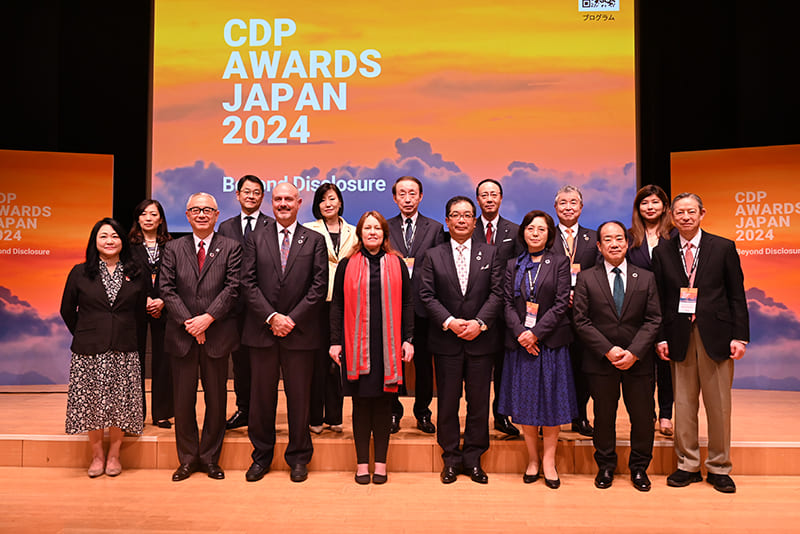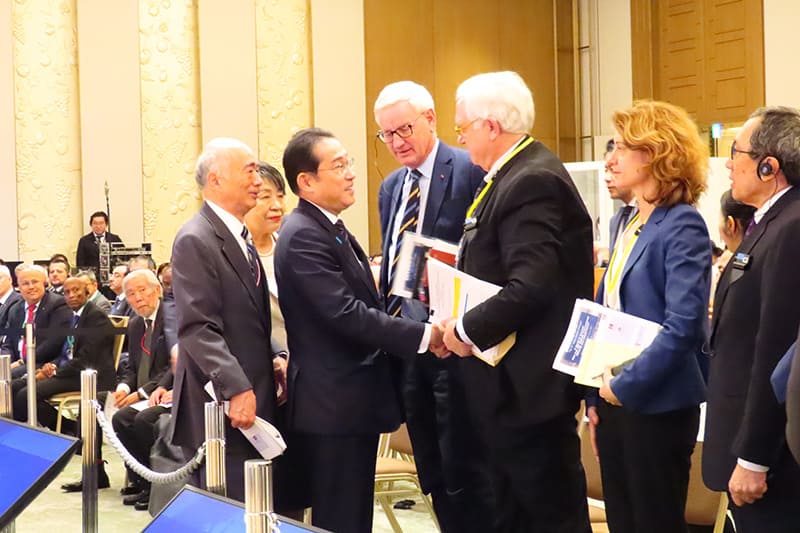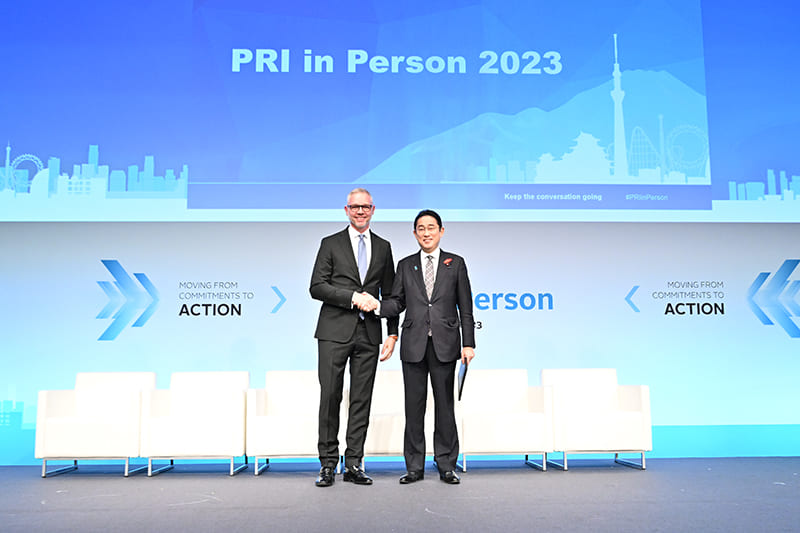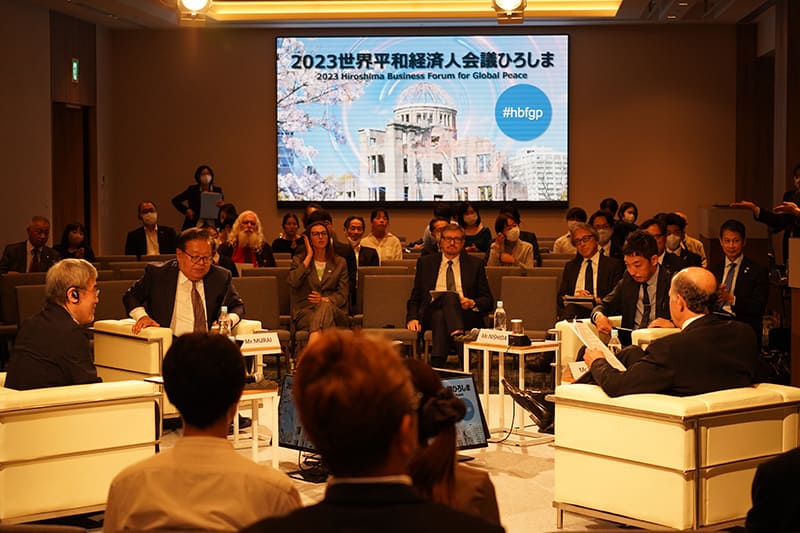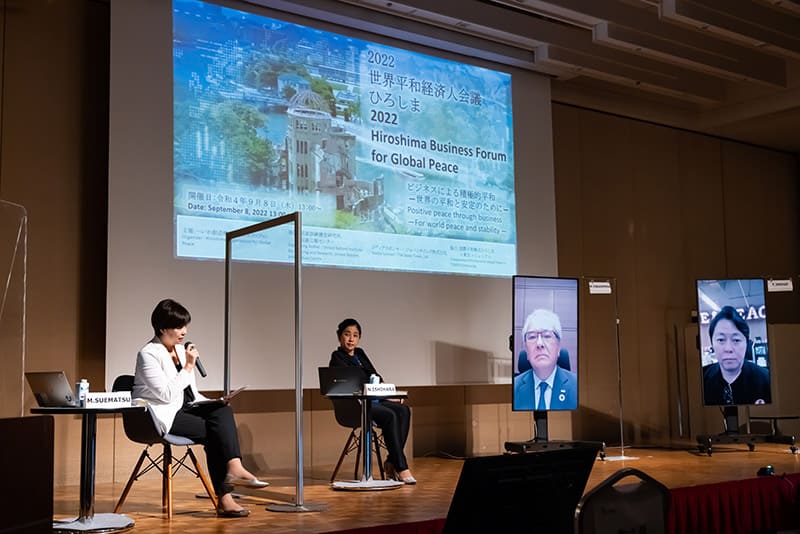February 22, 2024
Tokyo Global Dialogue to search for paths to international stability
Media partner
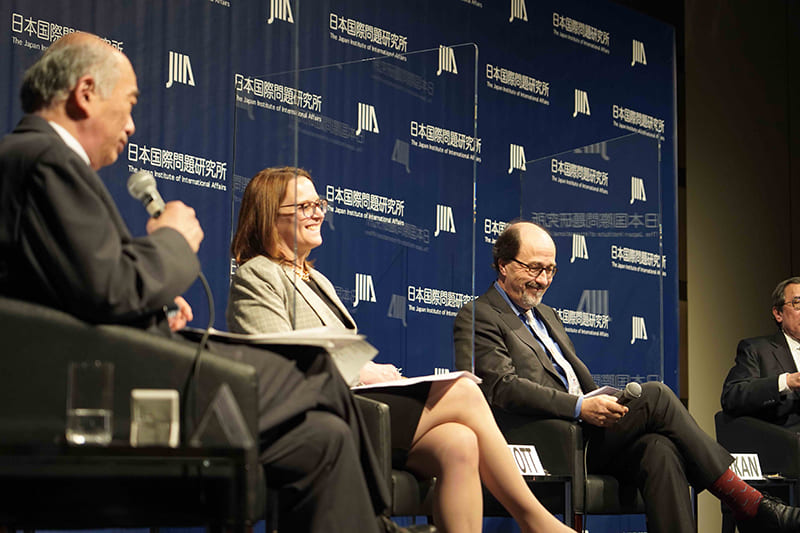
The fifth Tokyo Global Dialogue, organized by the Japan Institute of International Affairs, will be held at the Okura Tokyo hotel in Tokyo’s Minato Ward and online on Feb. 28 and 29, involving dozens of domestic and international experts on international security and cooperation.
JIIA President Kenichiro Sasae, who has held a number of diplomatic positions, including vice minister for foreign affairs and ambassador to the United States, said in a recent interview with The Japan Times that the world is experiencing progressive destabilization. “In the upcoming event, we will discuss how to build stable international security and cooperation in the midst of turbulent times,” he said.
The dialogue was launched in 2019 to commemorate the 60th anniversary of the JIIA, a private, nonpartisan policy think tank specializing in foreign affairs and security issues. As is customary, Prime Minister Fumio Kishida is expected to deliver opening remarks and Foreign Minister Yoko Kamikawa will present a keynote address at the initial session on Feb. 28.
Sasae noted the importance of sharing Japan’s views with the rest of the world: “Japan has achieved postwar development and come to play an international role. But is its ability to convey its message sufficient, and are Japan’s ideas and policies understood by the world? This is why it is so important to facilitate an international dialogue in Japan and share its outcome with the global community.” The theme of this year’s dialogue is “A World in Turmoil: How Can We Rebuild International Security and Cooperation?” The first session will be a roundtable about the JIIA’s Strategic Annual Report 2023, from which the theme is taken, featuring scholars and experts from seven countries, including former Swedish Prime Minister Carl Bildt, now the vice chairman of the strategic communications consultancy Kreab; Justin Bassi, the executive director of the Australian Strategic Policy Institute; and Daniela Schwarzer, a member of the executive board of the Bertelsmann Stiftung foundation.
In order to discuss the topics from various perspectives, speakers with diverse backgrounds will come together on the second day, including the president and CEO of the Center for Strategic and International Studies, John J. Hamre, from the United States; the president of the Institute for National Security Strategy, Han Sukhee, from South Korea; and Peking University professor Jia Qingguo, from China.
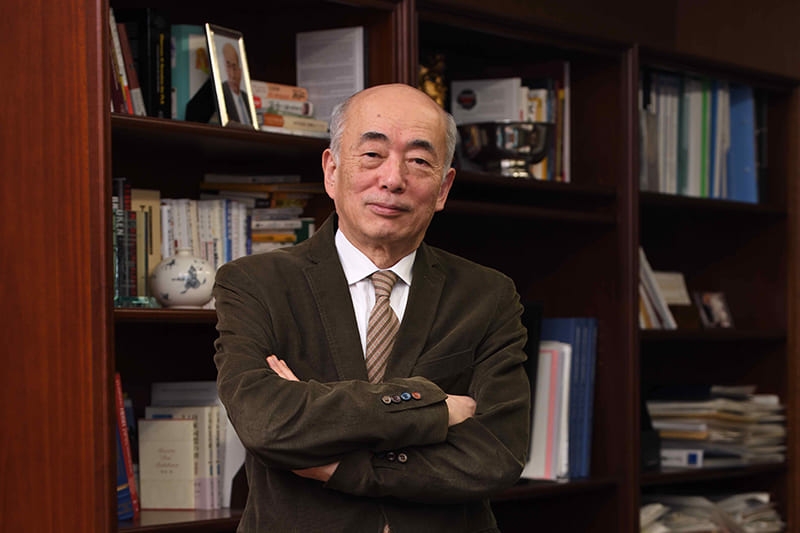
There will be six sessions featuring major issues and conflicts that are shaking international affairs, including the “three fronts” of the war in Ukraine, the conflict in the Middle East and U.S.-China competition. The ongoing turmoil is also causing a potential slowdown in concerted efforts toward achieving the United Nations’ sustainable development goals. “The war in Ukraine is not a problem of Europe alone,” Sasae warned. He said that never since World War II has there been such a drastic invasion even though national conflicts of interest have been emerging as disparities grow amid economic globalization following the Cold War. “But then such a superpower, Russia, invaded another country head-on, disregarding international law. This is an immense problem. International law will lose its meaning if changing a status quo by force — that is, to dominate another country’s territory — is allowed,” Sasae said.
Sasae forecast that the competitive relationship of the United States and China is likely to continue for the medium and long terms, though a dialogue between the two countries has started.
He said the war between Hamas and Israel signifies a worsening situation in the Middle East. “Japan, which has maintained relatively good relations with the [Persian] Gulf states, should provide indirect, political support aimed at successful negotiations for the release of the hostages and a temporary ceasefire,” he said.
He stressed that Japan should apply its characteristics to contribute to global peace and security. “But to be persuasive enough, we need to have diplomatic power that is supported by economic power,” he said. To demonstrate economic power, he said, Japan should make the kinds of efforts that other “normal” countries do, including military assistance as well as the provision of economic support, which Japan has already been doing extensively. He said a balance of military capabilities is necessary for disarmament efforts. “If there is too big of a gap between the military power of one country and another, it is difficult to negotiate arms control,” he said. “Each country should make efforts to enhance deterrence by keeping the military power gap small.”
In the sessions, speakers will discuss how the world should respond to these pressing issues, and the role of Japan in doing so. “The world is becoming increasingly multipolar, making it impossible to simply categorize nations as advanced countries or developing ones,” Sasae said. “Various approaches need to be taken to match the circumstances of each country in terms of policies.” He expressed his hope that the discussions at the Tokyo Global Dialogue will serve as an opportunity for viewers to think about many problems that have no simple solutions.
Aiming to highlight issues related to a sustainable society, The Japan Times gave its support to this event by becoming a media sponsor.
You can register to attend the fifth Tokyo Global Dialogue here: https://www.jiia.or.jp/TGD/tgd5/en/


